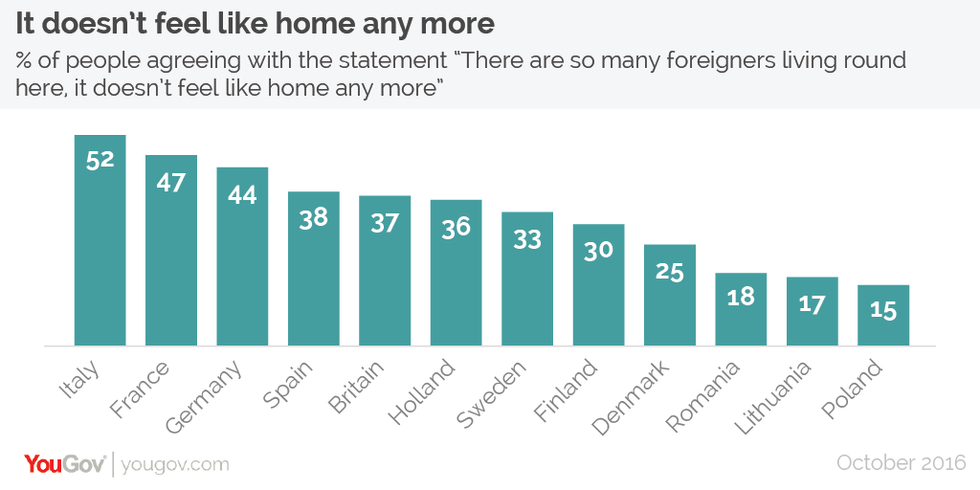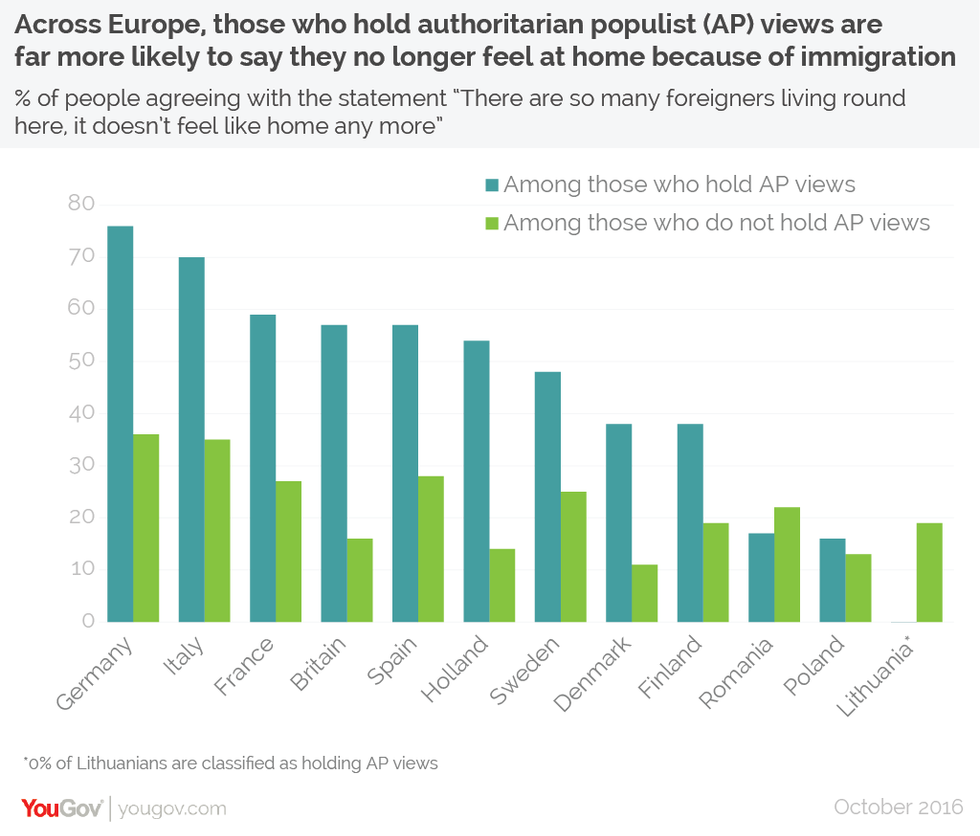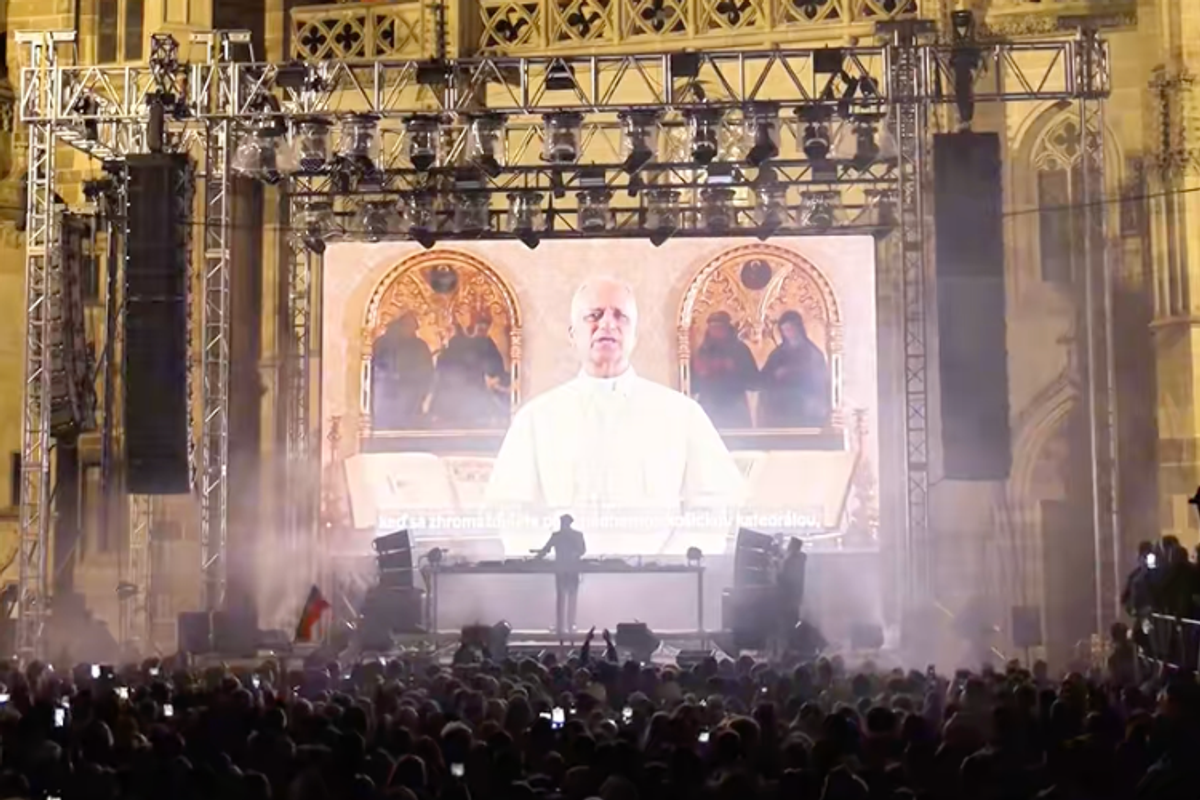News
Louis Dor
Dec 06, 2016
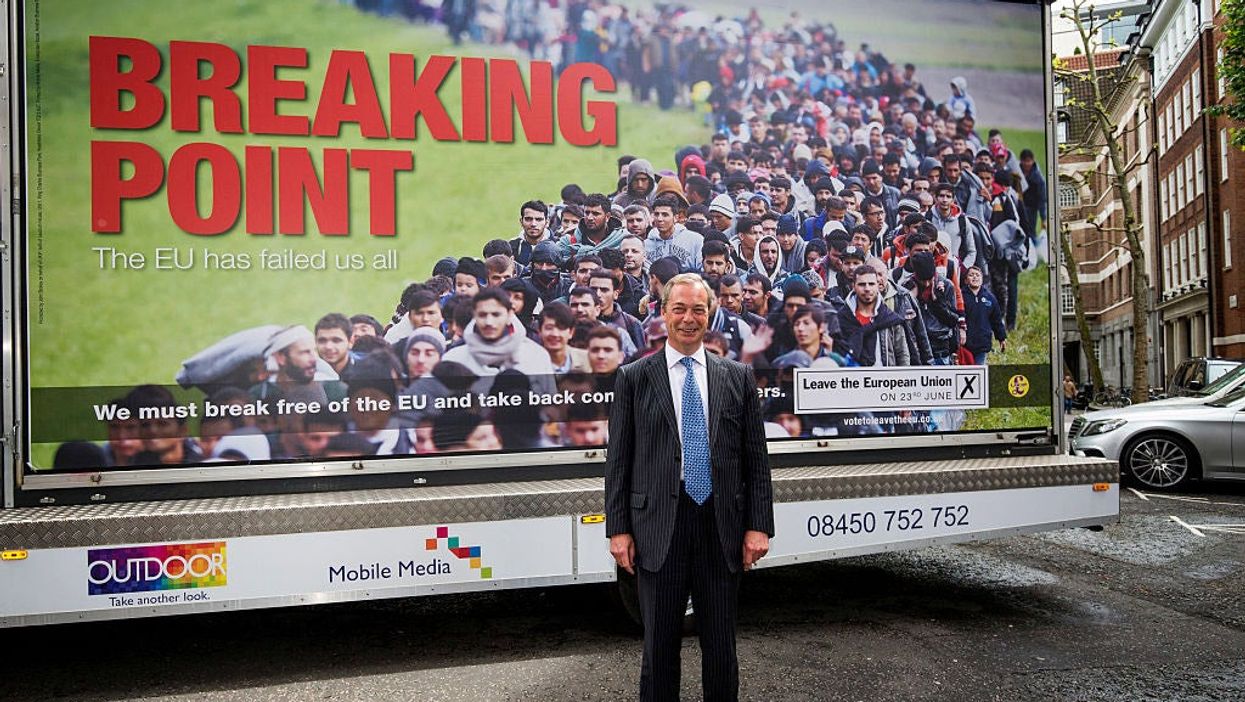
Picture:
Jack Taylor/Getty Images
Thirty-seven per cent of the country agree with the following statement:
There are so many foreigners living round here, it doesn't feel like home any more.
This is according to a new YouGov survey of 12 European countries, in which Britain was the country fifth most likely to agree with the statement.
It's worth pointing out that more British people actually disagree with the statement (39 per cent) than agree.
The statement was also found to ring true especially with those who held authoritarian populist views.
A previous survey by Ipsos-MORI has found that people tend to vastly overstimate the proportion of their population which is made of immigrants, and they believe immigration is twice the actual level.
Across 14 countries the public thought that 24 per cent on average were born abroad, when the actual level is 11 per cent. In the UK the figure was guessed to be 24 per cent, when the real number was 13 per cent.
The same phenomena occurs for Muslim population levels - in the UK the average guess was 21 per cent of the population, whereas the figure was five per cent.
In June Ipsos-MORI surveyed perceptions around EU immigration levels - people in the UK believed, on average, that EU citizens made up 15 per cent of the total UK population, when in reality it was around 5 per cent.
Constituencies in the UK that don't experience immigration are more likely to say it's a negative thing than constituencies that have higher levels of migrants, these are also typically rural areas where eurosceptic and populist authoritarian parties like Ukip have enjoyed a rise in popularity.
In short, the British people who see immigrants less on a day-to-day basis are more likely to dislike immigration.
Vote Leave supporters at the time guessed around 20 per cent of the UK population were EU immigrants.
We wonder why they overestimated.
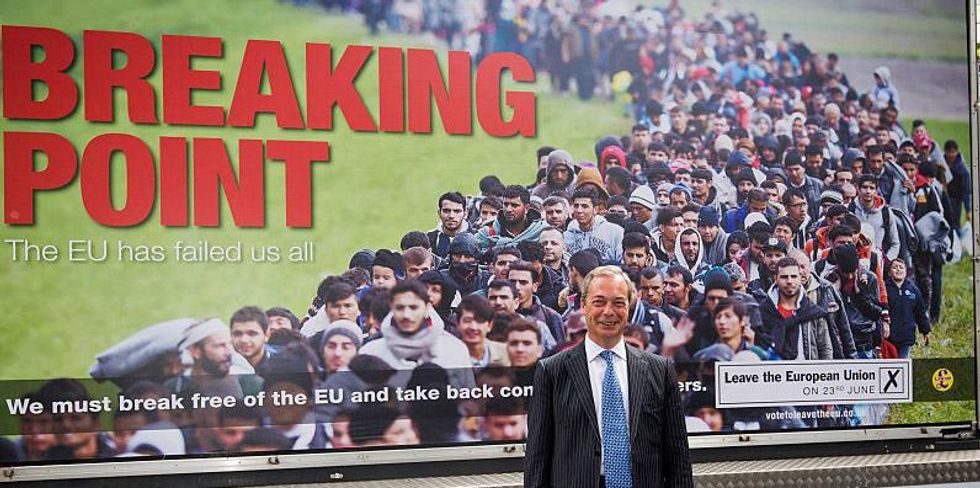
Top 100
The Conversation (0)
